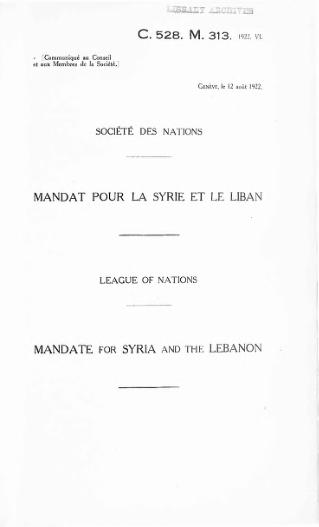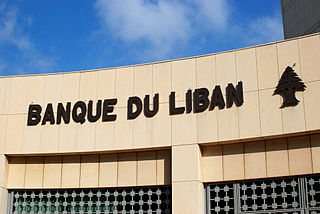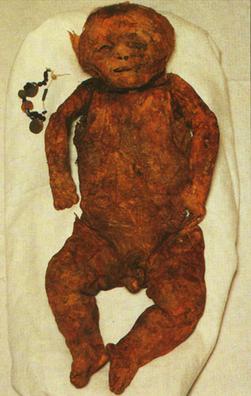 |
|---|
|
This is a list of the members of the 1st Lebanese parliament. It had 46 members. 30 of them were elected during the 1927 elections and the other 16 were added to body after the abolishment of the Senate.
 |
|---|
|
This is a list of the members of the 1st Lebanese parliament. It had 46 members. 30 of them were elected during the 1927 elections and the other 16 were added to body after the abolishment of the Senate.
| Province | Method of election | Ethnic group seat | Elected members |
|---|---|---|---|
| Beirut [1] | Elected in 1927 | Greek Catholics | Salim Najjar |
| Greek Orthodox | Nakhleh Tweini | ||
| Maronite | Émile Eddé | ||
| Albert Kashou'h | |||
| Minorities | Ayoub Tabet | ||
| Sunni | Abdallah Bayhum | ||
| Cheikh Mohammad al-Kasti | |||
| Existing members of the Representative Council | Greek Orthodox | Petro Trad | |
| Maronite | Georges Tabet | ||
| Minorities | Michel Chiha | ||
| Sunni | Omar Bayhum | ||
| Omar Daouk | |||
| Beqaa | Existing members of the Representative Council | Greek Catholics | Elias Tohmeh Skaff |
| Greek Orthodox | Chibl Dammous | ||
| Maronites | Mousa Nammour | ||
| Shi'ites | Sobhi Haidar | ||
| Sabri Hamadeh | |||
| Sunnis | Hussein Qaz'oun | ||
| Mount Lebanon [2] | Elected in 1927 | Druze | Sami Arslan |
| Maronite | Habib Pacha Es-Saad | ||
| Bechara El Khoury | |||
| Shi'ite | Ahmad al-Husseini | ||
| Existing members of the Representative Council | Druze | Fouad Arslan | |
| Jamil Talhouk | |||
| Greek Orthodox | Ibrahim al-Mounzer | ||
| Maronites | Roukoz Abou Nader | ||
| Yousef al-Khazen | |||
| Najib Sa'ad | |||
| Emile Tabet | |||
| Georges Zwein | |||
| North Lebanon [3] | Elected in 1927 | Greek Orthodox | Jubran Nahhas |
| Maronite | Youssef Estephan | ||
| Existing members of the Representative Council | Greek Orthodox | Nicolas Ghossa | |
| Maronites | Mas'oud Younes | ||
| Wadih Tarabey | |||
| Sunnis | Adra Khaireddine | ||
| Abboud Abdel Razzak | |||
| South Lebanon [4] | Elected in 1927 | Shi'ite | Fadl al-Fadl |
| Hussein al-Zein | |||
| Existing members of the Representative Council | Greek Catholics | Yousef Salem | |
| Maronites | Habib Nassif | ||
| Shi'ites | Najib Oseiran | ||
| Abdullatif al-Asaad | |||
| Yousef al-Zein | |||
| Sunnis | Khaled Chehab | ||
| Tripoli [5] | Elected in 1927 | Sunni | Cheikh Mohammad al-Jisr |
Posts and telecommunications have long played an essential role in Lebanon, a small country with an expansive diaspora, a vivid media landscape, and an economy geared toward trade and banking. The sector's history has nonetheless been chaotic, marked by conflict but also, and perhaps most importantly, a deeply rooted legacy of state control, weak competition, and intense politicization. A combination of poor services and high prices culminated in popular protests against the government's attempt, in October 2019, to tax the widely used messaging service WhatsApp. The anger this measure triggered captured a more general sense of dissatisfaction, and contributed to tipping the country into a protracted crisis. Civil unrest coincided with Lebanon's default on its ballooning debt; in the ensuing economic collapse, telecommunications have been among the infrastructure most affected.

The Kataeb Party, officially the Kataeb Party – Lebanese Social Democratic Party, also known as the Phalanges, is a right-wing Christian political party in Lebanon founded by Pierre Gemayel in 1936. The party and its paramilitary wings played a major role in the Lebanese Civil War (1975–1990), opposing Palestinian forces in the country as well as collaborating with Israel. Pierre's youngest son Bachir, the leader of the party's militia, was elected President in 1982, but was assassinated before he could take office. He was succeeded by his older brother Amine, who led the party through much of the war. In decline in the late 1980s and 1990s, the party slowly re-emerged in the early 2000s and is currently part of the Lebanese opposition. The party currently holds 4 out of the 128 seats in the Lebanese Parliament.

Antoine "Tony" Suleiman Frangieh was a Lebanese politician and militia commander during the early years of the Lebanese Civil War. He was the son of Suleiman Frangieh, a former Lebanese president.
Middle East Airlines – Air Liban S.A.L., more commonly known as Middle East Airlines (MEA), is the flag carrier of Lebanon, with its head office in Beirut, near Beirut–Rafic Hariri International Airport. It operates scheduled international flights to Asia, Europe, the Middle East, and Africa from its base at Rafic Hariri International Airport.

The Mandate for Syria and the Lebanon was a League of Nations mandate founded in the aftermath of the First World War and the partitioning of the Ottoman Empire, concerning Syria and Lebanon. The mandate system was supposed to differ from colonialism, with the governing country intended to act as a trustee until the inhabitants were considered eligible for self-government. At that point, the mandate would terminate and a sovereign state would be born.

The State of Greater Lebanon, informally known as French Lebanon, was a state declared on 1 September 1920, which became the Lebanese Republic in May 1926, and is the predecessor of modern Lebanon.

The South Lebanon Army or South Lebanese Army, also known as the Lahad Army or as the De Facto Forces (DFF), was a Christian-dominated militia in Lebanon. It was founded by Lebanese military officer Saad Haddad in 1977, amidst the Lebanese Civil War, and evolved to operate as a quasi-military during the South Lebanon conflict, basing itself in Haddad's unrecognized State of Free Lebanon.
Dory Chamoun is a Lebanese politician who led the National Liberal Party (NLP) from 25 May 1991 till 10 April 2021 when he was succeeded by his son Camille Dory Chamoun who became a MP in the 2022 Lebanese general election. He is also a prominent member of the Qornet Shehwan Gathering, a coalition of politicians, academics, and businessmen who oppose the pro-Syrian March 8 Alliance and Syrian influence in Lebanon. He is the eldest son of late Lebanese president Camille Chamoun and brother of Dany Chamoun.

The Marada Movement is a Lebanese political party and a former militia active during the Lebanese Civil War named after the legendary Marada warriors of the early Middle Ages that fought on the external edge of the Byzantine Empire. Originally designated the Marada Brigade, the group initially emerged as the personal militia of Suleiman Frangieh, president of Lebanon at the outbreak of the war in 1975. They were also initially known as the Zgharta Liberation Army, after Frangieh's hometown of Zgharta in northern Lebanon.

The Lebanese Communist Party is a communist party in Lebanon. It was founded in 1943 as a division of the Syrian–Lebanese Communist Party into the Syrian Communist Party and the Lebanese Communist Party; but the division was only implemented in 1964.

Banque du Liban is the central bank of Lebanon. It was established on August 1, 1963, and became fully operational on April 1, 1964. In 2023, Wassim Mansouri stepped up as interim governor of the Banque du Liban after Lebanon failed to name a successor to Riad Salameh, whose term finished in July 2023.

Lebanon has never participated in the Eurovision Song Contest. The country's broadcasting organisation, Télé Liban, was set to make the country's debut at the Eurovision Song Contest 2005 with the song "Quand tout s'enfuit" performed by Aline Lahoud, but withdrew due to Lebanese laws barring the broadcast of Israeli content.

The pound or lira is the currency of Lebanon. It was formerly divided into 100 piastres but, because of high inflation during the Lebanese Civil War (1975–1990), subunits were discontinued.

The Fédération Libanaise des Eclaireuses et des Guides is the national Guiding organization of Lebanon. Guiding was introduced to Lebanon in 1937 and became a member of the World Association of Girl Guides and Girl Scouts (WAGGGS) in 1954. The girls-only federation consists of five independent organizations with a total of 6,615 members(as of 2008).

Télé Liban is the first Lebanese public television network, owned by the Lebanese government. It was a result of a merger of the privately run Compagnie Libanaise de Télévision (CLT) and Télé-Orient. TL is the current Lebanese member of the European Broadcasting Union (EBU).

Rachid Solh was a Lebanese politician and former Prime Minister, kin of one of the most eminent Sunni Muslim families in the country that brought several of its members to the office of prime ministers, and that was originally from Sidon but later moved its civil-records to Beirut.

The Maronite mummies are eight well preserved natural mummies of Maronite villagers dating back to around 1283 AD. They were uncovered by a team of speleologist/archaeologists during a rescue excavation in the Qadisha Valley of Lebanon in 1990. They are currently on display in the National Museum of Beirut.
General elections were held in Lebanon in 1927. The new Parliament had 46 members, and was formed by adding 16 elected members to the 30 elected members from the previous Representative Council.

Najib Azmi Mikati is a Lebanese politician and businessman who has served as the prime minister of Lebanon since September 2021. He also leads a cabinet that has assumed the powers of the president of Lebanon since the term of president Michel Aoun ended in October 2022. He has previously served as Prime Minister from April to July 2005, and from June 2011 to February 2014. He also served as Minister of Public Works and Transport from December 1998 to 2003.

Albert Moukheiber was a Lebanese doctor, politician and a former Lebanese Parliamentary member who was widely known for his opposition to the Syrian military presence in Lebanon. He was also co-founder of the National Bloc Party.